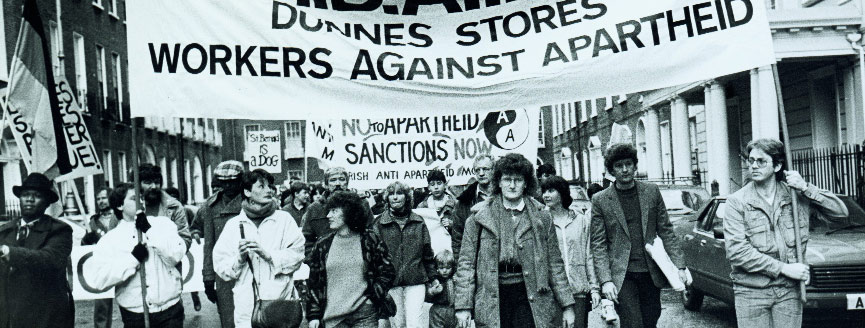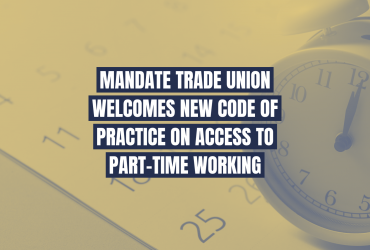
On International Women’s Day, let us remember the heroic actions of all women who have stood against injustice
Thursday 8 March 2018International Women’s Day is a time to reflect on the heroic actions of all those who have put the cause of women’s equality to the fore. In the trade union movement we have an abundance of female activists who have selflessly won significant victories for all workers – women and men.
In Mandate we think of Cissy Cahalan, who was our first elected female President in 1921, and won a 30% pay increase for members in Arnotts in Dublin. Under her presidency, she also managed to win a legislated minimum wage and the abolition of the Living in System – where many low-paid drapery workers, mostly female, would be killed as a result of being locked inside drapery premises at night.
In 1945, the Irish Women’s Workers’ Union organised a successful three month strike to win improvements in terms and conditions of employment that resulted in two weeks paid annual leave for all workers in Ireland.
Then there are the Dunnes Stores Anti-Apartheid strikers – including ten young women and one young man – from Henry Street in Dublin who went on strike for two years and nine months in order to vindicate their right not to handle goods from Apartheid South Africa.
Their strike eventually led to the Irish government banning goods from South Africa and is credited with helping to end the Apartheid regime.
In July 1984, shop steward Karen Gearon gave a union instruction to her colleagues informing them not to handle South African goods in protest against the apartheid regime which was oppressing the majority black population of the county.
When Mary Manning, a 21 year old cashier and IDATU member (now Mandate Trade Union), refused to process a customers’ fruit through her till, she was suspended leading to nine of her colleagues walking out the door in solidarity with her.
It was the beginning of a very difficult battle against not only Dunnes Stores, but also against many of the others in Ireland including elements of the media, the political establishment, the church and aggressive members of the public who verbally and physically abused the strikers at the time.
Nevertheless, the 10 young women and one young man held their ground for almost three full years, braving the hail, rain, snow and sun to make their voices heard.
The strike made international headlines with Archbishop Desmond Tutu visiting Dublin to thank the Dunnes Stores workers for their solidarity.
Nelson Mandela also visited Dublin after his release from prison in 1990 and told the Dunnes workers’ that their stance helped keep him going during some of his most difficult times in prison. They were also invited to attend his funeral in 2013.
Karen Gearon, speaking in 1985 from a picket on Henry Street said the strike had made them all aware of not only the horrors in South Africa, but of other injustices around the world.
“Our battle is nothing to what their battle is,” she said.
In May 2015 the Dunnes Stores strikers had a plaque laid on Henry Street honouring all who took part in the strike including:
Karen Gearon, Mary Manning, Liz Deasy, Michelle Gavin, Vonnie Munroe, Alma Russell, Tommy Davis, Sandra Griffin, Theresa Mooney, Catherine O’Reilly, Brendan Barron and Brendan Archbold.
The list of heroic women activists in the trade union movement is endless, and it would be impossible to list them all here. But today, we pay tribute to all of our sisters who have won, and continue to win, improvements in living standards for all women, men and children across the world.
Happy International Women’s Day 2018.






